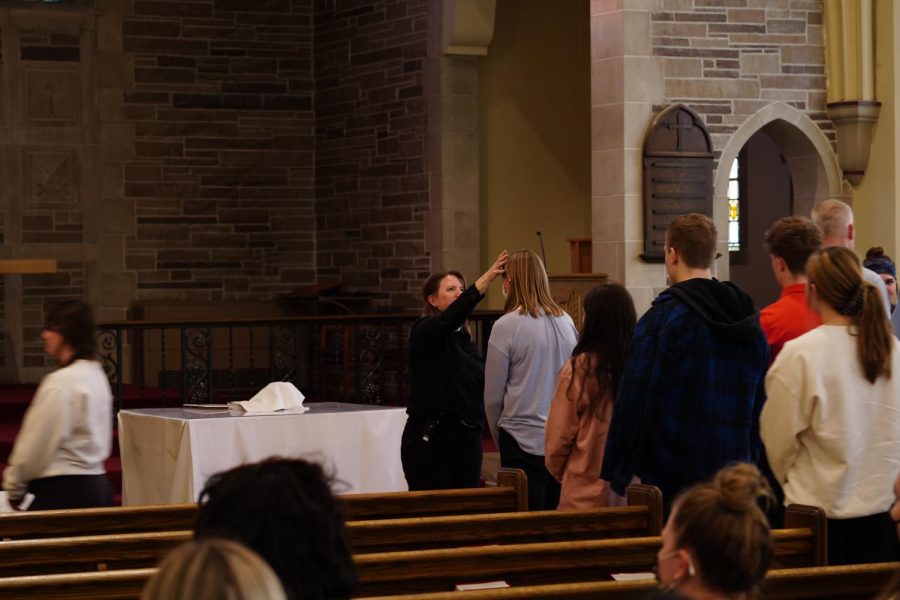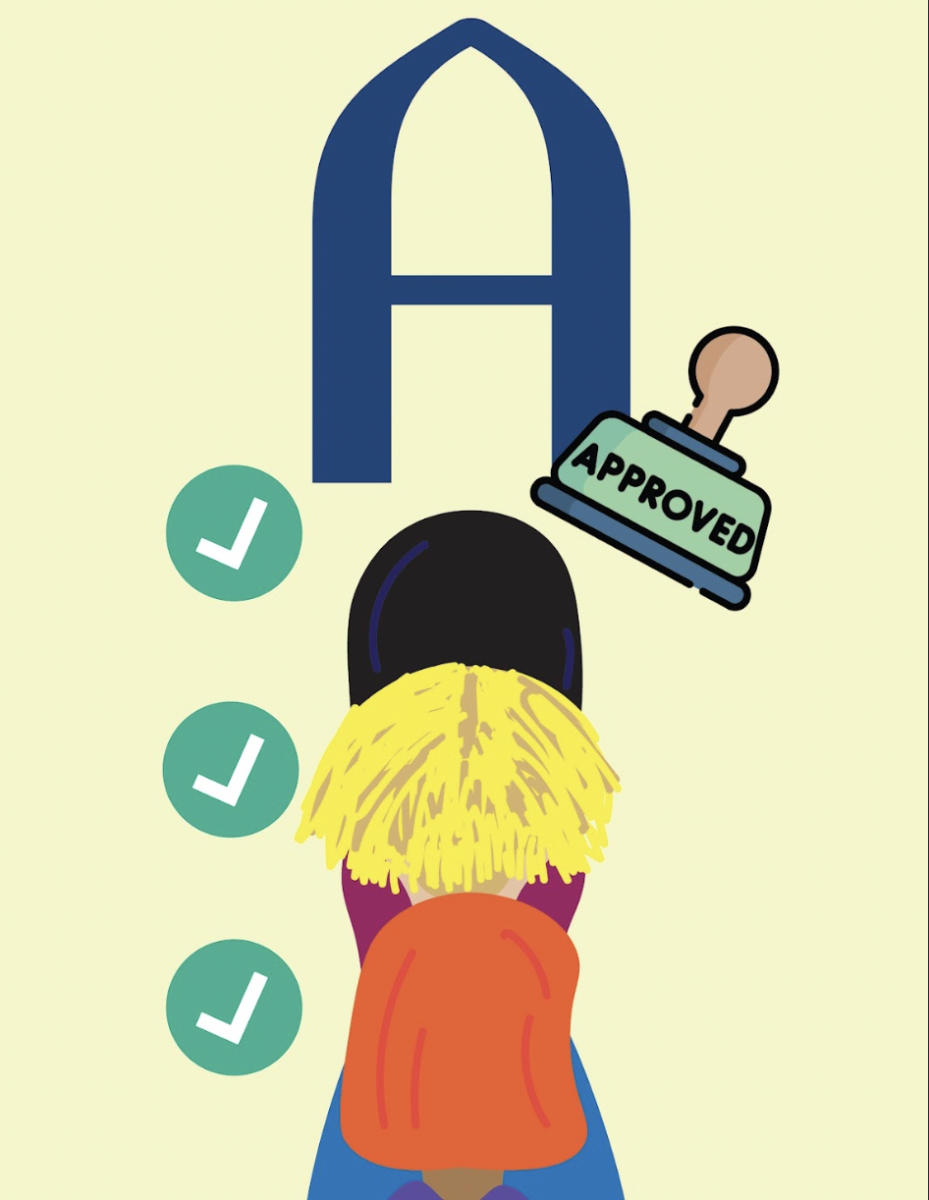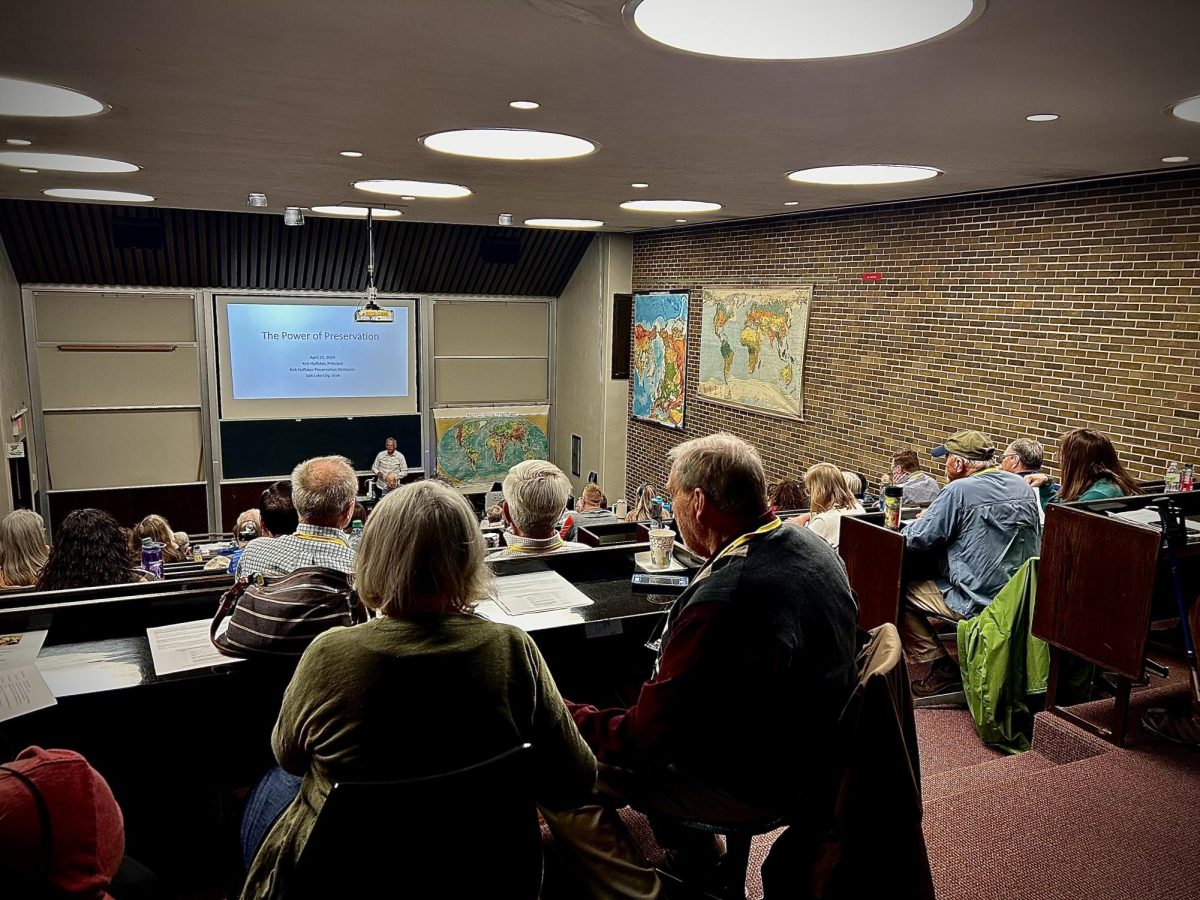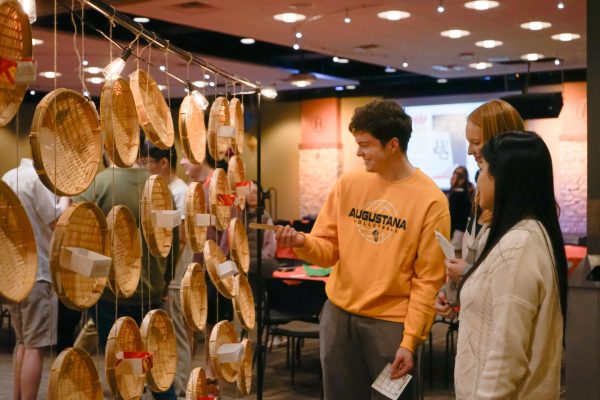Ash Wednesday reveals religious diversity on campus

Inviting the students forward, Pastor Pupillo along with the students working with campus ministries help mark ash for those wanting to come forward.
March 11, 2022
While Augie is a Lutheran college, Catholicism is one of the biggest practiced religions on campus. Over the past five years, there has been a massive increase in Catholicism, accounting for 24% of the campus population. In the Catholic tradition, much like in other religions, there are many big holidays called Holy Days of Obligation if attending mass is involved. For Catholics, one of these big days is Ash Wednesday. Though Ash Wednesday is also celebrated by Lutherans, it is closely associated with Catholic tradition.
Ash Wednesday is the first day of a 40 day fasting period called Lent. After the forty day period of Lent, there is Easter Sunday which is celebrated across the country by millions of Americans. This year, the Ash Wednesday service was at noon on March 2, 2022.
In the Catholic tradition, Ash Wednesday is the day people go to mass and get anointed with ashes. The ashes are given on the forehead in the shape of the cross. This day is an important ceremony, because it represents the beginning of a period towards repentance and human mortality. Lent is a period for contemplating mistakes and restricting indulgences as a way to strengthen one’s relationship with God. There are multiple people on campus to help and explain different aspects of Lent to students, such as Pastor Melinda Papillo, who works for campus ministries. She leads some of the services on campus.
“[It is] a time for prayer, penitential time, while thinking of our own shortcomings. Ash Wednesday is meant to direct us to the love of Jesus and it starts with Ash Wednesday,” Papillo said.
As Ash Wednesday begins Lent, it also has strong ties to Easter, which ends the liturgical season. Holy Week, the last week of Lent, focuses on the final week of Jesus’s life, culminating in his crucifixion. Preceding that, the 40 days of Lent (which does not include Sundays, though most Christians practice Lent through the whole week) represent the time Jesus spent in the desert before Holy Week. In this time, he was tempted by the devil and, to represent that period of starvation and temptation, practicing Christians give up some things or fast on Ash Wednesday and Good Friday.
Beyond practices of annual religious observations like Ash Wednesday, weekly religious services are a big part of campus. Every Sunday, there is a Catholic mass. During the week, there are two religious services that are open to all religions. However, even if students identify with different religions, everyone is welcome to mass on Sunday. As of right now, there are no Catholic leaders on campus. But for the Sunday services, a priest always comes to campus.
Gabrielle Gortiz is the coordinator and president of Augustana Catholic on campus. “I think religion can provide purpose and answers to life’s questions. Personally for me it has provided me with peace, purpose and joy,” Gortiz said.
Lutheran and Catholic religions share many similarities when it comes to Ash Wednesday. In both religions, there is some sort of communion (called “eucharist” in Catholicism). Ash Wednesday is not a part of simply one identity and religion. It is a part of multiple. In the Greek Orthodox tradition, it is called the Annonciation, which is the same ritual as Ash Wednesday, except participants are anointed with blessed oil.
Even though most of the campus is Catholic, the college has been connected to the Evangelical Lutheran Church in America (ELCA) since 1988, and Augustana will likely remain a Lutheran college regardless of the shift in religious views. However, Augustana continues to respect students’ choices to practice whatever religion they choose.









































































































